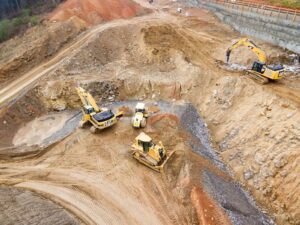In a sign of just how frequent water pollution events are now occurring, an online resource will track discharges across Britain. But will companies willingly contribute?
A layer for real-time data on raw sewage discharges has been added to the Rivers Trust interactive Sewage Map. The new tool will show which combined sewer overflows are discharging at any given time, and highlight any that have overflowed in the last 48 hours.
While this will be welcome news to everyone from wild swimming enthusiasts to environmental campaigners, the platform is only effective with input from water companies. The UK’s 2021 Environment Act introduced the requirement for all suppliers in the sector to make real time data on pollution events public, but failed to stipulate a date by which this should be done. As such, when the real-time element of the map went live just one firm had already started this sharing practice – Thames Water.
Despite the slow progress, collecting and releasing this information is widely considered to an essential step towards improving Britain’s poor recent record on water pollution. Not only does it arm the public with details of safe bathing conditions, it can be used to create historical comparisons against weather and groundwater conditions at the time overflow discharge took place. Such variables are frequently cited as a root cause of sewage spills. As such, compiling evidence around this would be an important boost to ensuring the investment outlined in the Government’s recently announced Plan for Water is spent wisely.
You can find the map here.
‘We’ve seen the power of open data in recent years as people have woken up to the reality of sewage pollution, but annual summaries are no longer good enough. In the interests of transparency, we’re calling on all water companies to urgently provide real-time data on sewage discharges. This will not only allow the public to make informed decisions about safe river recreation, but also will help those of us working in the water sector underst
and how the sewerage system is being managed,’ said David Johnson, The Rivers Trust Technical Director.
More on water pollution:
The Polluted Mermaid campaign highlights plight of marine life
Legally binding targets announced to cut sewage dumping in rivers
Image: The Rivers Trust

















